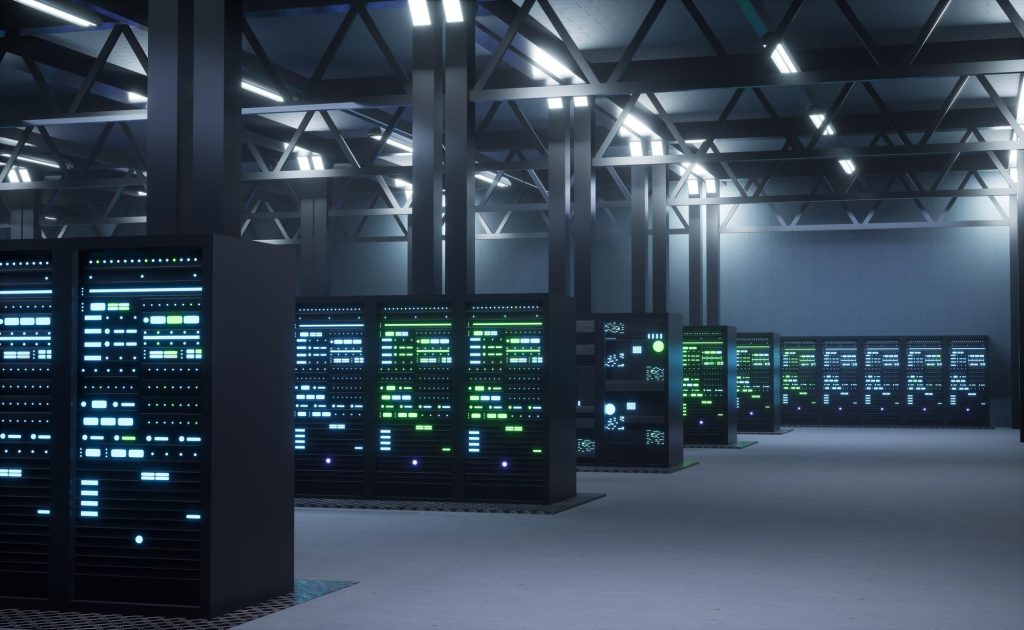
Management of Server Farms for Performance and Profit
Table of Contents
Welcome to the world of server farming, where technology and efficiency collide to power the digital age! In today’s fast-paced, interconnected world, server farms have become the backbone of countless businesses and industries. From hosting websites and streaming services to managing data storage for multinational corporations, these colossal collections of servers play a vital role in keeping our digital lives running smoothly.
But what exactly is a server farm? And why are they so important? Join us as we dive into the fascinating realm of server farms and explore how their management can optimize performance while maximizing profitability. Whether you’re an IT enthusiast or a business owner looking to harness the power of technology, this article will provide valuable insights into the intricacies of efficient server farm management.
So buckle up and get ready to discover how cooling systems, virtualization technology, data management strategies, security measures, and even automation are revolutionizing the way we manage these technological behemoths. Let’s embark on this journey together as we unlock the secrets behind successful server farm management for both performance enhancement and financial gain.
Implementing Efficient Cooling Systems for Maximum Performance
One crucial factor in managing server farms is ensuring optimal temperature control. Without proper cooling systems in place, servers can overheat and lead to performance issues or even system failures. Implementing efficient cooling systems is essential for maintaining maximum performance and avoiding costly downtime.
There are several approaches to achieve effective cooling in server farms.
Air Conditioning Units: One common method is using air conditioning units designed specifically for data centers. These units regulate the temperature by providing cool air directly to the servers, preventing overheating.
Liquid Cooling: Another approach is utilizing liquid cooling technology. This involves circulating chilled liquid through heat sinks attached to the servers’ components, effectively dissipating heat more efficiently than traditional air cooling methods.
Efficient Airflow System: In addition to choosing the right cooling technology, it’s important to design an efficient airflow system within the server farm layout. By optimizing the arrangement of racks and implementing hot aisle/cold aisle configurations, you can minimize heat recirculation and improve overall airflow management.
Maintenance: Regular maintenance and monitoring of these cooling systems are also crucial. Conducting routine inspections, cleaning filters, and checking coolant levels will help identify any potential issues before they become major problems.
By taking proactive steps towards implementing efficient cooling solutions tailored to your specific needs, you can ensure that your server farm operates at its best capacity while minimizing risks associated with overheating-induced downtime or hardware failures.
Utilizing Virtualization Technology in Server Farms
Virtualization technology has revolutionized the way server farms operate, providing numerous benefits and optimizing their performance. By utilizing virtualization, multiple virtual machines (VMs) can run on a single physical server, improving resource utilization and reducing hardware costs.
- One of the key advantages of virtualization in server farms is its ability to increase flexibility and scalability. With virtualization, it becomes easier to allocate resources dynamically based on workload demands.
- Moreover, virtualization enables better disaster recovery capabilities within server farms. By creating snapshots or backups of VMs, organizations can easily restore their systems in case of any unforeseen events or failures.
- Another significant benefit is improved energy efficiency. Since multiple VMs can run on a single physical server, fewer servers are needed overall which leads to reduced power consumption and cooling requirements.
Additionally, virtualization allows for easy application deployment and software testing within server farms. With isolated environments provided by VMs, new applications or updates can be tested without impacting the production environment.
The Future of Server Farm Management: Automation and Artificial Intelligence
With technology evolving at an exponential rate, the future of server farm management holds exciting possibilities. Automation and artificial intelligence (AI) are set to revolutionize the way these farms are managed, making them more efficient, reliable, and profitable.
- One aspect where automation and AI can greatly benefit server farms is in the monitoring and maintenance of hardware. By implementing predictive analytics algorithms, systems can proactively identify potential issues before they become critical failures.
- Additionally, machine learning algorithms can optimize resource allocation within a server farm. By analyzing usage patterns and adjusting workload distribution accordingly, these intelligent systems ensure that resources are allocated efficiently, leading to improved performance and cost savings.
- Another area where automation plays a crucial role is security. AI-powered cybersecurity tools can detect anomalies in real time by continuously analyzing network traffic data. This helps in identifying potential threats or unauthorized access attempts promptly so that necessary actions can be taken immediately.
In conclusion, as automation continues to evolve alongside artificial intelligence capabilities in managing server farms efficiently for maximum performance gains while reducing costs through better resource allocation—there’s no doubt that this combination holds immense promise for businesses aiming to stay competitive in today’s fast-paced digital landscape.
Also Read: Metro by T-Mobile: Prepaid Phones on Affordable Plans
Conclusion: Maximizing Performance and Profit in Server Farms
Effective management of server farms is crucial for businesses to achieve maximum performance and profitability. By understanding the components of a server farm, implementing efficient cooling systems, utilizing virtualization technology, managing data and storage effectively, ensuring security and disaster recovery measures, and embracing automation and artificial intelligence, businesses can optimize their server farms’ operations.
Managing data effectively is another critical aspect of maximizing profitability in server farming. By employing appropriate storage solutions like solid-state drives (SSDs) instead of traditional hard disk drives (HDDs)—businesses can improve read/write speeds dramatically which directly translates into faster response times for end-users accessing their applications or services.

